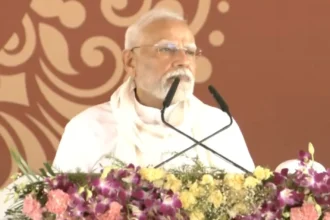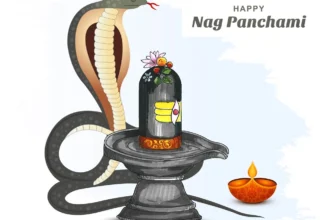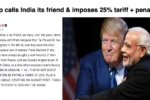In a concerning development for India’s digital payment push, street vendors in several cities, most notably Bengaluru, are protesting against tax demand notices and, in response, are increasingly avoiding UPI (Unified Payments Interface) payments, opting for cash transactions instead.
Table of Contents
This backlash stems from a perceived unfair targeting by tax authorities:
The Core Issue: Tax Demand Notices Triggered by UPI Data
- GST Notices to Small Vendors: Thousands of street vendors, many earning well below the Goods and Services Tax (GST) registration threshold (₹40 lakh for goods, ₹20 lakh for services annually), have received tax demand notices.
- UPI as the Culprit: These notices were reportedly triggered after tax departments, particularly in Karnataka, analyzed UPI transaction data. They identified vendors whose cumulative UPI transactions over a period (some dating back to FY 2021-22) exceeded the GST threshold, leading them to be deemed liable for GST registration and payment, along with potential penalties.
- Fear of Harassment and Unfair Taxation: Vendors are distressed, claiming they were never adequately informed about these implications when they adopted UPI. They fear harassment from tax officials, huge retrospective tax demands (some running into lakhs of rupees), and the complex compliance requirements of GST. Many also express concerns that personal transactions, or informal loans between family and friends, might be mixed with business income in their UPI accounts, leading to inflated turnover figures.
- “No UPI, Only Cash” Trend: In response to these notices and the fear of further scrutiny, many vendors have removed UPI QR codes from their stalls and put up signs explicitly stating “No UPI, only cash.” This is a stark reversal from the widespread adoption of UPI that was celebrated as a key aspect of India’s “Digital India” campaign.
Here are some real, recent examples:
1. The ₹29 Lakh Notice to a Vegetable Vendor in Haveri, Karnataka:
- Who: Shankargouda, a small vegetable vendor near the Municipal High School grounds in Haveri, Karnataka.
- What happened: He received a GST notice demanding ₹29 lakh (approx. USD 35,000) in tax.
- Why: Tax officials claimed his UPI-based transactions totaled ₹1.63 crore (approx. USD 195,000) over four years, making him liable for GST, even though fresh vegetables are generally exempt from GST.
- Vendor’s perspective: Shankargouda expressed shock, stating he thought fresh vegetables were exempt and that he regularly files income tax returns. He questioned how he could possibly pay such a large amount from his small business, which operates on thin margins.
- Impact: This specific case has become a major flashpoint, sparking widespread protests among street vendors and small traders across Karnataka.
2. Widespread “No UPI, Only Cash” Signs in Bengaluru:
- Observation: Throughout Bengaluru, which was once a shining example of UPI adoption, there’s been a visible shift back to cash.
- Examples: Small shopkeepers, street vendors, and even some small bakeries and condiment shops are removing their UPI QR codes and displaying hand-written signs that read “No UPI, only cash.”
- Reason: This is a direct response to the fear of receiving GST notices after the commercial tax department in Karnataka began scrutinizing UPI transaction data. Vendors fear that any digital transaction could be used to slap them with hefty, retrospective tax demands.
3. Bakers, Milk Vendors, and Flower Sellers Targeted:
- Specific Sectors: Reports indicate that GST authorities have specifically targeted small businesses and vendors selling items like milk, baked goods, condiments, flowers, and meat.
- Protest Action: The Karnataka labour council president, Ravi Shetty Byndoor, stated that small traders would hold a three-day protest from July 23, including a “bandh” (shutdown) on July 25, where they would not sell milk and milk-based products on July 23-24. They plan a major gathering at Freedom Park in Bengaluru.
4. The “Know GST” Campaign by Karnataka Government:
- Response to Protests: Faced with the backlash, the Karnataka government has launched a statewide outreach program called “Know GST.”
- Purpose: The commercial taxes department is holding workshops to educate traders about GST rules.
- Vendor Skepticism: However, vendor associations remain largely unsatisfied, arguing that officials are still threatening penalties and that the campaign is too little, too late, especially as demands for past arrears from 2021-22 are still being made. Some vendors who attended these workshops reported being told to simply “submit transaction details” rather than having notices withdrawn.
5. Bengaluru Bandh Call:
- Organized Protest: Traders’ bodies in Karnataka, under the Karnataka Karmika Parishat (KKP), gave a call for a strike on July 23 and 24, culminating in a complete shop shutdown on July 25 in Bengaluru. This significant action demonstrates the widespread distress and organized resistance among the vendors.
These examples clearly illustrate how the tax demand notices, primarily based on UPI transaction data, have led to a tangible fear among street vendors, prompting them to move away from the very digital payment method that was once lauded for its ease and efficiency.
Keep following Duniya Daily for more such important news and experiences!










